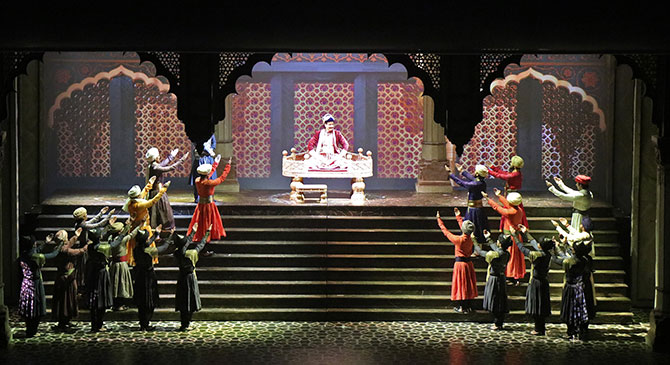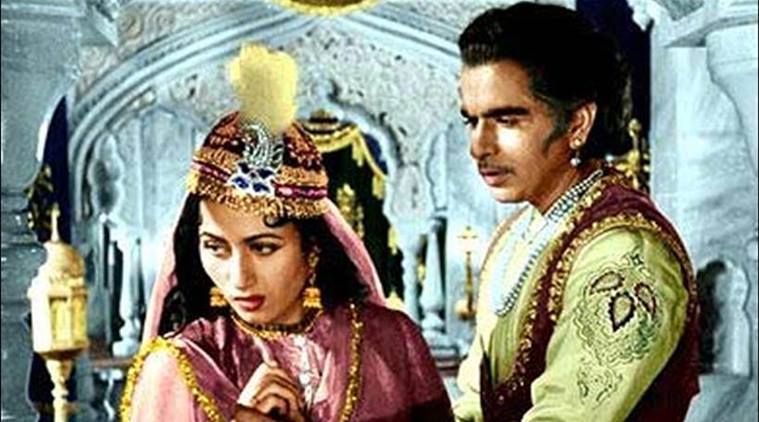Last weekend I watched the stage version of Mughal-e-Azam. I like new perspectives, even if they do not hold the old charm.
Feroz Abbas Khan’s take on the Anarkali-Prince Salim love
story under the not benevolent eye of Emperor Akbar is an ambitious project.
How could K.Asif’s landmark movie translate in the confined space of a stage,
especially since there weren’t any claims at ‘reinventing’ the classic and the
intent was to almost repeat the scenes and the dialogues verbatim?
As a tribute it succeeds; it has the head-bowed quality about it, aware all the
time of looking up to an icon. And it has improvised marvellously. That battle
scene is breath-taking because it relies on lights, sound and choreography. The
same applies to the kathak interludes – these are professional dancers and, to
be honest, it was they who elevated the Pyar
kiya to darna kya song sequence by adding heft to Anarkali’s challenge, and
pathos; in the film the song was about Madhubala. There was also an innovative
use of ‘mirrors’ and light to create the sheesh mahal, although the light
hitting the audience made me squint and miss out on some ‘chakkars’ by the
dancers.
There was also live singing. Neha Sargam as Anarkali did a
marvellous job, but was it necessary, considering it was the same music? It was
also rather disappointing when at curtains down, the announcer mentioned how
people weren’t convinced that it was live singing and asked her to sing a few
lines right there. To my mind, this was insulting to the artiste. The makers do
not have to justify anything and ask their own actors to give proof.
If the original was about performances, this was not. For a supposedly
more intimate medium, the acting was alienating. Probably it is the stage where
expressions rely on voice and body language. Nissar Khan as Akbar was powerful
at moments and desultory at others. Sunil Palwal as Salim has presence, but
where was the angst? And where was the passion with Anarkali, the understated
caresses, that choke in the voice? As for Jodha, there is no real pining for a
son nor the conflict between suhaag and motherhood. Bahar’s - the daasi hoping
to become a princess - character too does not have enough oomph and guile that
the original possessed.
For me that was sad because on the film I felt Nigar Sultana
had overtaken Madhubala in the qawaali not due to the lines but gumption (aidedhugely by Shamshad Begum’s voice).
Naushad’s music was the stuff of legend and it was good to
revisit it ‘pictorially’, even if not entirely satisfactorily. Theatre, unlike
cinema, is not really a director’s medium. But here the director rules,
followed by stage design, lighting, choreography. It was treated like an
occasion. People were taking selfies before the posters in the lobby…after all
they had paid good money for the tickets.
-->
I’d say it was worth the few thousand bucks. For the million
bucks’ worth, buy a DVD for a couple of hundred rupees.

